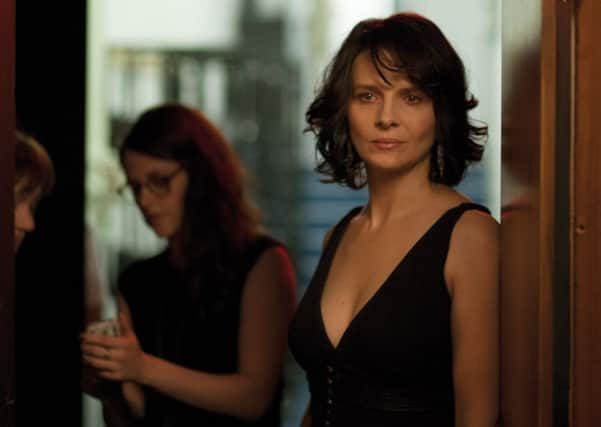Glasgow Film Festival review: The generation gap


Although there’s still much to see as this year’s Glasgow Film Festival, which draws to a close tomorrow night with the UK premiere of Force Majeure, a couple of intriguing themes have emerged over the last ten days of movies.
Intergenerational tensions, for instance, were very much at the heart of two of this year’s main draws: Frances Ha director Noah Baumbach’s festival opener While We’re Young (****) and the latest from Olivier Assayas, Clouds of Sils Maria (****). In the former, Ben Stiller’s frustrated documentary maker finds himself alternately energised and terrified by his friendship with a hipster director (Adam Driver) whose casual and cool-seeming re-appropriation of previous generations’ cultural signifiers masks his own ruthless desire to succeed and usurp them.
Advertisement
Hide AdThe film slyly skewers everyone and even though its sympathies clearly lie with Stiller, charges of finger-wagging generational bias are offset by the actor’s innate unlikeability. Even when he’s right, he makes it hard to be on his side, something the acute and witty script has a lot of fun with playing around with.
Clouds of Sils Maria approaches similar themes in a more dramatic way by adopting the template of All About Eve and casting Juliette Binoche as a movie star tempted back to the stage to play the older lead in a play that 20 years earlier had provided her with her breakthrough as the ingénue – a role that is now to be played by a tabloid-baiting young movie star (Chloë Grace Moretz, clearly channeling Lindsay Lohan). Though the bulk of the film focuses on the relationship between Binoche’s character and her assistant, played by Kristen Stewart, what follows is an intriguing, psychologically complex interrogation of professional insecurity and ageing, given an extra satirical kick by Stewart (who’s very good) delivering thinly veiled reflections on the nature of celebrity and Hollywood franchise culture.
Speaking of which, the festival has showcased a couple of artier riffs on the kind of supernatural-themed blockbusters Clouds despairs at. The Danish film When Animals Dream (HHH), for instance, is somewhat reminiscent of a lycanthropic Let the Right One In. Its tale of a young woman beginning to learn the truth about why her father keeps her mother so heavily sedated serves up an intriguing meditation on patriarchal fears of female sexuality, so it’s a slight shame that it over-eggs things with a very slow build-up that spends too long hinting at the obvious.
More fun was Spring (****), an entertainingly lo-fi American/Italian production about a young American (Lou Taylor Pucci) who high-tails it to Europe after some local trouble and falls for a genetics student (Nadia Hilker) whose interest in him may not be entirely romantic. Though it features superficial similarities to When Animals Dream, its revelations are much more elaborate and unpredictable, and amidst the black comedy and carnage it also has some insightful things to say about the heartbreaking power of fast-forged love.
Finally, one of the real discoveries of the festival was Fell (****), a bleak but beautiful Australian revenge movie about a distraught father who goes primal after his daughter is killed in a hit-and-run accident. Recent Australian arthouse films like Snowtown and The Rover are useful reference points, but the restrained way debut feature director Kasimir Burgess ratchets up the tension gives this a quiet and devastating power all its own.